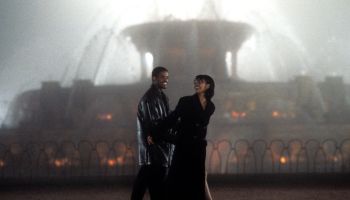Is There a Need for HBCU’s?
It was Imar L. Hutchins, Esq., Morehouse College class of 1992, that started the ruckus with his letter to Robert C. Davidson, Jr., the chairman of the school’s board of trustees.
Morehouse is a historically black college located in Atlanta. The school’s most famous alumnus is probably Martin Luther King, Jr., but that isn’t the only reason Morehouse should be cherished in the heart of every black American.
As an HBCU that is dedicated to educating black men, the importance of Morehouse can’t be overlooked.
That means we can’t overlook Hutchins’ letter to Davidson, either. Hutchins is concerned about Morehouse’s future, about its legacy and about its relevance to a new generation of African-American men.
Hutchins put four specific questions to Davidson about Morehouse’s mission. One of them was, “Should homosexual Morehouse Men be embraced?”
I can’t really believe this is an issue, but Hutchins says it is. (And a note to Hutchins: I believe the preferred term would be “gay men,” brother, not “homosexual men.”)
Gay men clearly have no problem being accepted at Morehouse. In fact, if the things Hutchins says in other parts of his letter are true, then Morehouse can ill afford to turn away academically qualified black applicants that happen to be gay.
So what Hutchins is saying is that gay men routinely get their humps busted at Morehouse. If that’s the case, then the only advice I can give them is what I would give gays – and non-gays – similarly situated.
Bust humps back. End of discussion.
“Is social justice still a part of the Morehouse tradition?” Hutchins asked Davidson. Isn’t it sad he even had to ask this question about King’s alma mater? But, according to Hutchins, who wrote his letter after talking to many alumni and current students at Morehouse, “many alumni fear they do not see enough of this (social justice) spirit in younger Morehouse Men of today.”
Hutchins said that some Morehouse students he talked to not only had no interest in social justice, but also seemed downright callous. His conversations with them, Hutchins admitted, “left me scratching my head.”
The brother should consider himself lucky. I’ve had conversations with young black folks that have left me feeling like I’ve rolled the dice with my sanity, or played Russian roulette with it. And the revolver had bullets in five of the six chambers instead of one.
But I have a suggestion for Hutchins and Davidson about this “social justice” thing: require each Morehouse student, as a condition of graduation, to serve an internship at the Atlanta public defender’s office.
Requiring similar internships might address Hutchins’ third question: “Is Morehouse primarily just a ‘business school’?” By having students serve what might be called “social justice” internships, it most certainly won’t be.
The first question – and probably the most important one – on Hutchins’ list was this one:
“Should black colleges even exist in the future, and if so, what should they look like?”
I would hope that black colleges look like they look now: filled with a preponderance of black students. But they might sound quite different.
It’s been my contention for a while that HBCU’s in America – and I don’t know if they exist in any other place – need to attract, educate and graduate blacks from across the African Diaspora.
That means the student from the Republic of South Sudan who wants to major in engineering to help build his fledgling country’s infrastructure might find his way to the excellent engineering program at Morgan State University.
HBCU administrators that find themselves with dwindling student populations – as more black American students head to white colleges and universities – might want to head down to Bahia province in Brazil, and take in a night school class of black Brazilians looking to get a college education.
I saw such a class several years ago in Bahia province. All the students – about 50 cramped into a classroom built for no more than 35 – had graduated from what all admitted were pathetic public schools in Bahia.
But all were committed to cramming into those remedial classes to learn the stuff they didn’t learn in school – for a chance at getting into one of Brazil’s colleges.
HBCU’s should invite those students here to be educated. They have a drive, a desire and a focus many black American students seem to lack. What will Morehouse College and other HBCU’s look like in the future?
I see them filled with people of African descent from around the globe.















